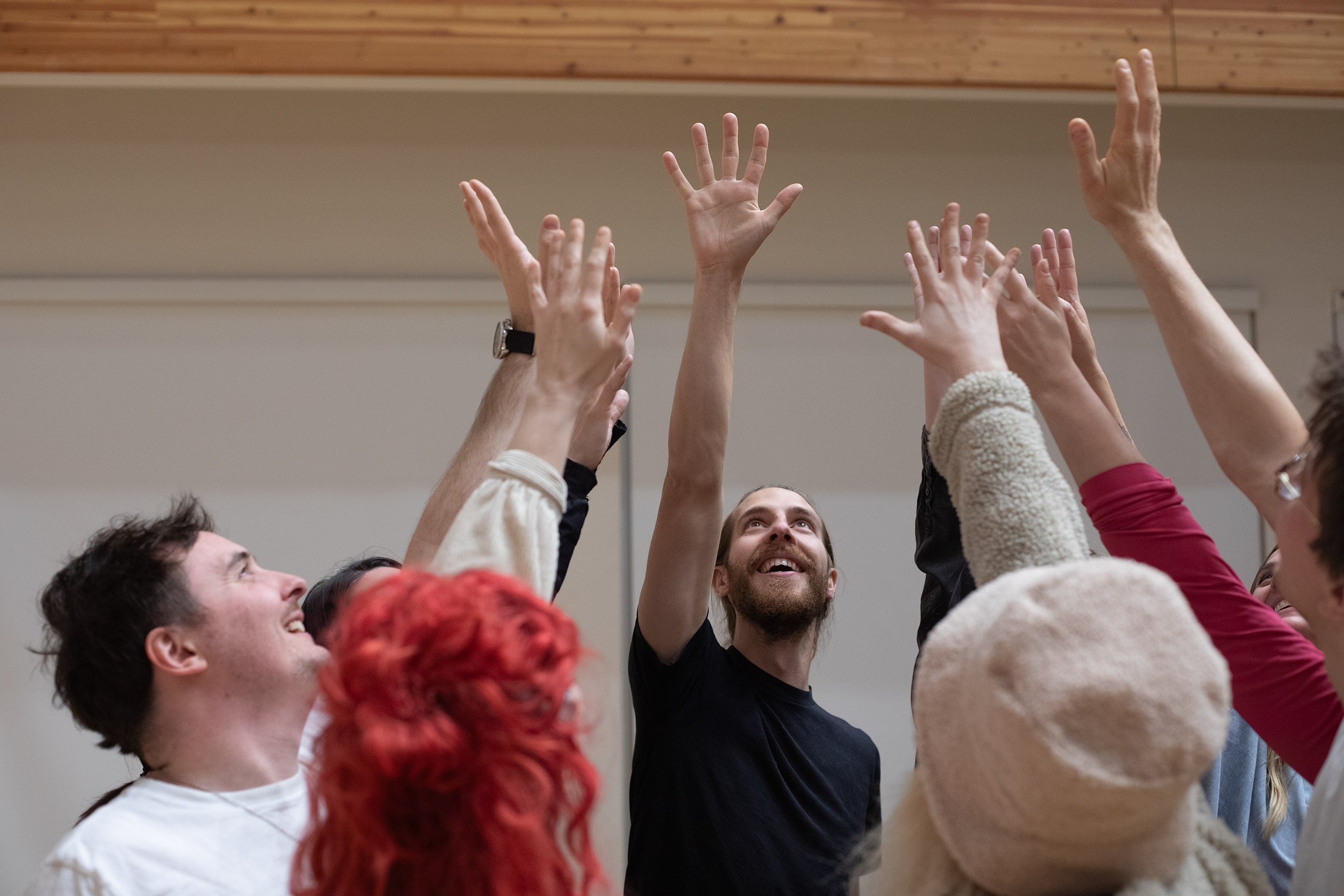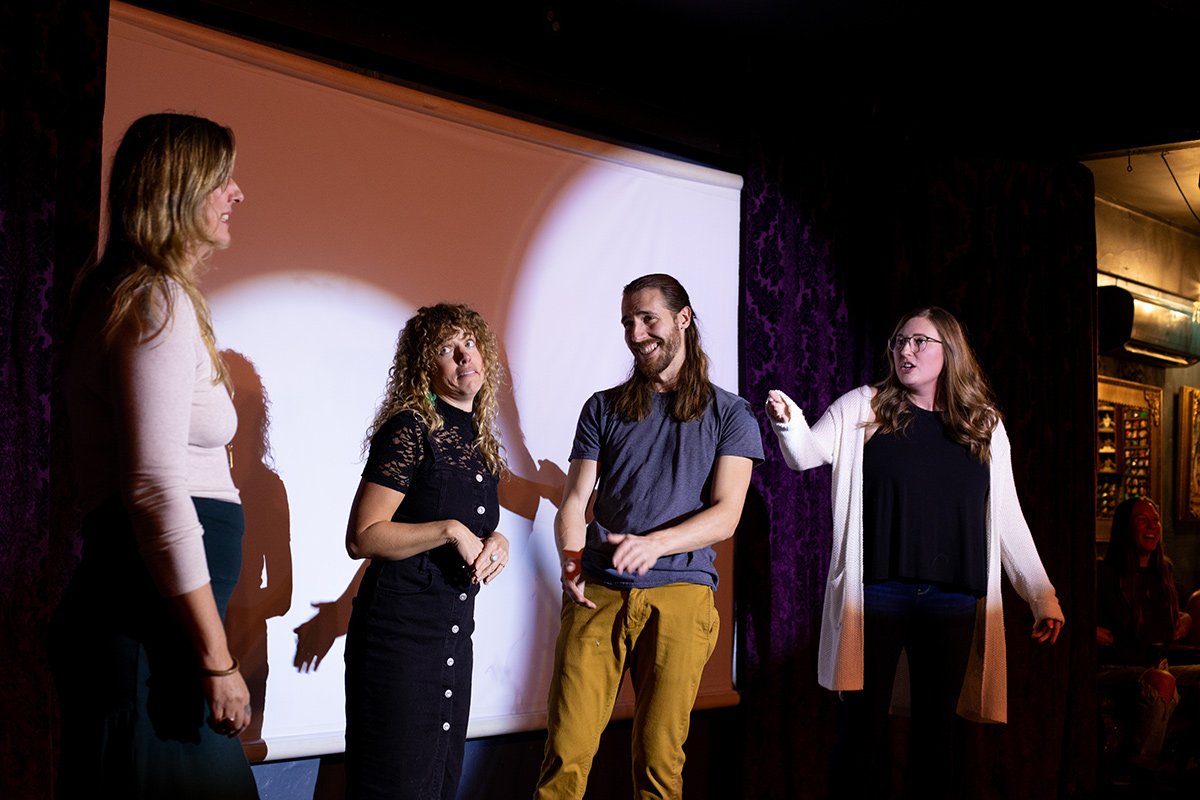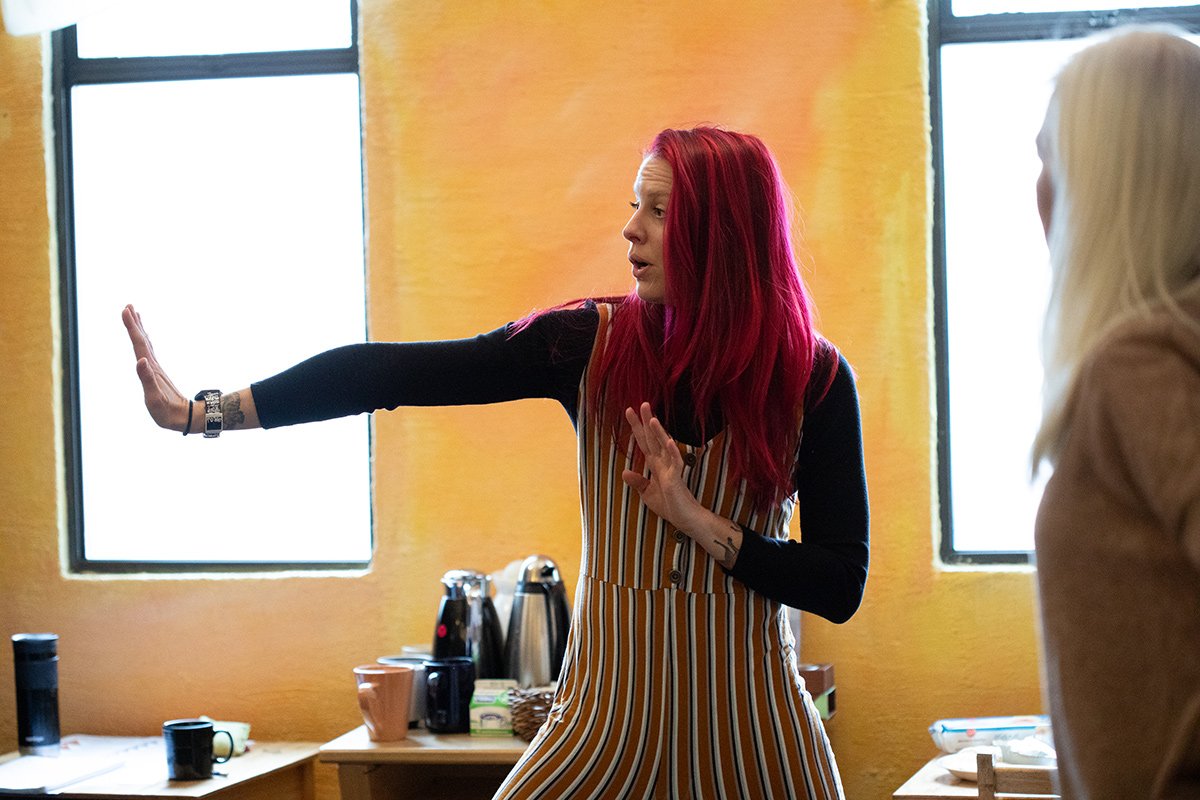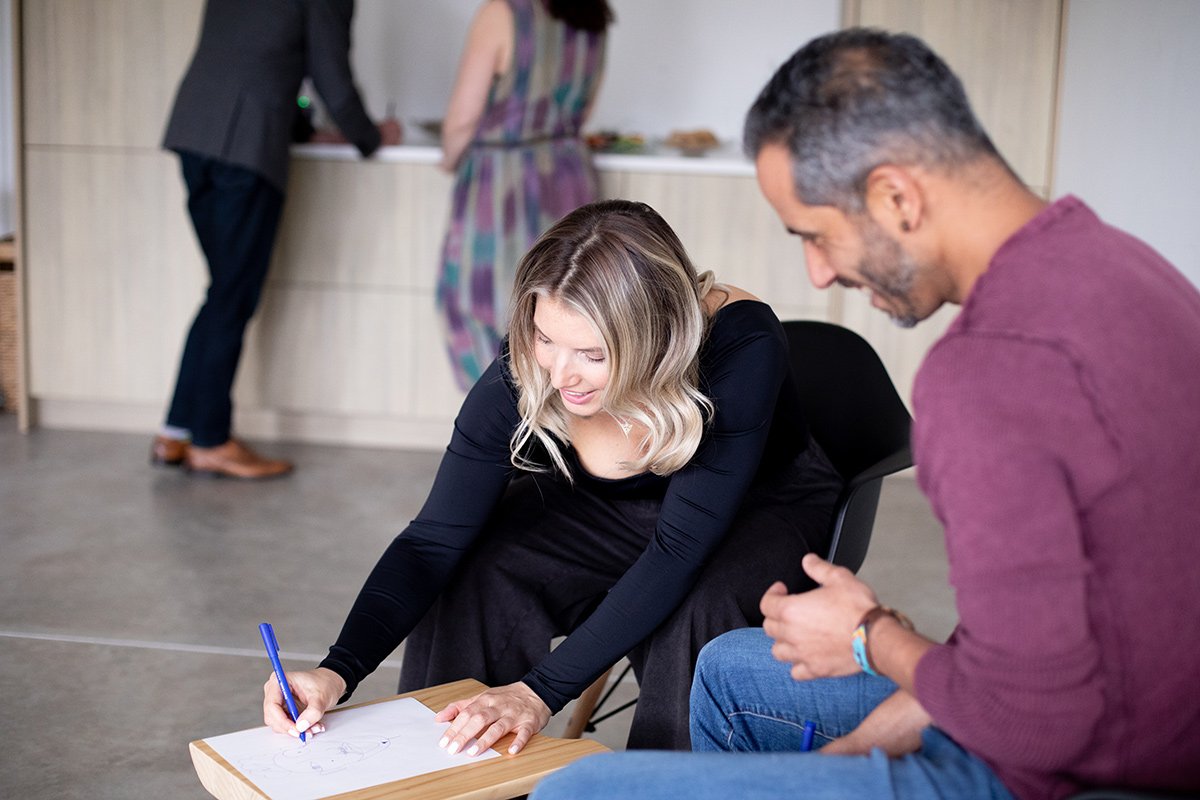
fostering CONFIDENCE and ACCEPTANCE through PLAY
Improv Develops and Unites Individuals, Teams and People.
Through laughter we grow.
Step Out! offers classes, workshops, shows, and workplace improv to satisfy your creative expression and assist in self-development. You’ll be playing and laughing until your cheeks hurt.
With a decade and a half of experience as a teacher and performer, Louise Robinson is a master and the instigator of Step Out! She has created safe spaces for us all to come as we are. Every show, class, lesson, session or activity will leave you more confident, inspired and connected to yourself and others.
If you are ready to Step Out! of your comfort zone, hone your craft or unite your workplace, Louise has developed a multitude of Improv and Acting Classes, Shows, Workshops and Programs engineered for corporations and individuals looking to grow.
Wanna play with us? Pick your entry point.
She got me out of my head and into the room in 5 minutes flat!
– Alex Coleman
“I really enjoy taking Step Out! classes. Louise is such an incredible mentor and guide. Her welcoming, bubbly personality and contagious laughter always help get me outside my comfort zone and build confidence to try new things.“
– Nina Fields
The rules of improvisation apply beautifully to life. Never say no - you have to be interested to be interesting, and your job is to support your partners.
— Scott Adsit
Improv Helps You:
• Yes, And...: This foundational concept involves accepting what another participant has created ("Yes") and then adding to it ("And"). It promotes collaboration and builds on the ideas of others, pushing scenes and interactions forward in a constructive manner.
Listening and Awareness: Improv requires keen attention to what's being said and done by others to respond appropriately and keep the scene flowing. This demands being fully present and engaged, qualities that are valuable in everyday life and work.
Adaptability and Flexibility: Since nothing in improv is predetermined, participants must be ready to change direction at a moment's notice. This teaches flexibility and helps develop the ability to think quickly and creatively in uncertain situations.
Failure as a Path to Learning: Improv encourages embracing mistakes as opportunities for creativity and humor. It fosters an environment where failure is not feared but seen as part of the process of innovation and discovery.
Teamwork: Improv scenes often involve multiple participants, requiring a sense of ensemble and cooperation. Success depends on the group's ability to work together, support each other's ideas, and share the spotlight.
DROP IN
The first class is on us.

“
The thing about improvisation is that it’s not about what you say. It’s listening to what other people say. It’s about what you hear.
— Paul Merton









